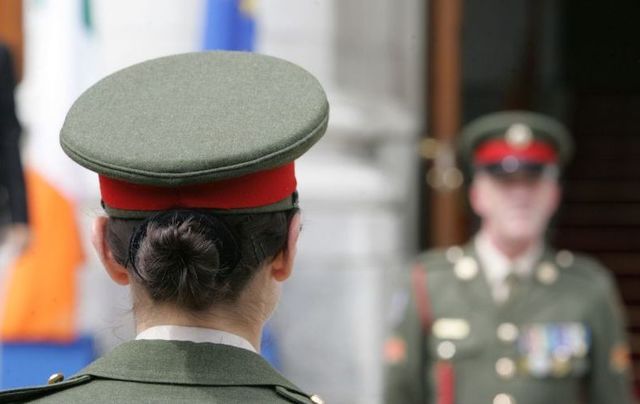Roslyn O’Callaghan, a former member of the Irish Defence Forces, has described being raped as a 21-year-old private by a senior non-commissioned officer (NCO) while on her first tour of duty abroad.
O’Callaghan, a member of the Women of Honour campaign, was speaking on RTÉ’s Upfront With Katie Hannon on Monday night, April 3.
"I want to go home"
Roslyn O’Callaghan, who is a retired Irish army corporal recalls her experience during a military hearing after she made an allegation of rape against a more senior member of the Defence Forces #RTEUpfront pic.twitter.com/RqYByqRCqm
— Upfront with Katie Hannon (@RTEUpfront) April 3, 2023
The interview followed the recent publication of a judge-led review of a report by a group of women veterans known as the Women of Honour that highlighted systematic failures including extensive patterns of inappropriate and illegal behavior within the military.
O’Callaghan, who was describing her first overseas tour early in her career, told of drinking too much at a party and being accompanied back to her base by a group of friends who put her to bed. They were accompanied by a senior NCO with whom she had no previous dealings and who she didn’t know personally.
O’Callaghan said, “I remember waking up and I remember this man kissing me and on top of me. I can remember my shorts being taken off me and my underwear and I remember this man having sex.”
She told him to go away but she was “so out of it” that she couldn’t fight or stop him.
O’Callaghan went on to say that she reported the alleged rape almost immediately and her senior officers were “very supportive.” She was seen by a doctor and referred to a sexual assault unit, where she was examined.
When test results returned, she was told the man was not going to be charged with rape. He was, however, charged with sexual conduct with a subordinate officer and with being in female quarters which is disallowed overseas.
At the hearing she said “that man raped me,” but the president officer said that wasn’t the issue and invited her to take a seat.
The man was disciplined, fined £175 and a “severe reprimand” was put on his record. When she came home she reported the alleged rape to gardaí but because it happened outside the jurisdiction it could not be investigated.
Later, the man gave her £10,000 for “counseling” without admitting any wrongdoing.
In 2001, following a suicide attempt, O’Callaghan was referred to a military psychiatrist, now deceased, who diagnosed her with severe post-traumatic stress disorder, about which she was not told. She “suffered” on “in silence” but after a breakdown in 2016, she was referred to a civilian mental health service. She got her records then.
“Why didn’t they tell me? It could have been treated,” she told the program. “I’d had a second suicide attempt.”
She said the initial investigation was “flawed from the start.”
Tánaiste and Defense Minister Micheál Martin confirmed that the government will move to set up a statutory inquiry into how complaints are handled.
He said, “The experience of many women in particular within the Defence Forces has been appalling.”
*This column first appeared in the April 5 edition of the weekly Irish Voice newspaper, sister publication to IrishCentral.




Comments